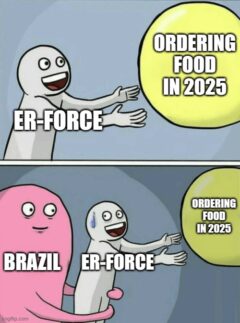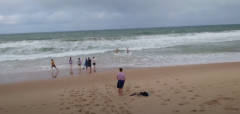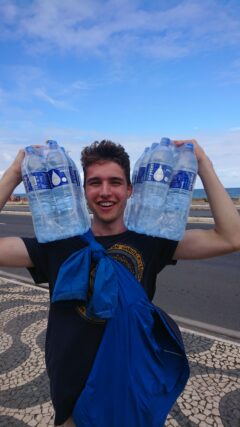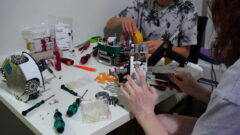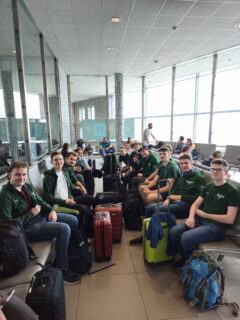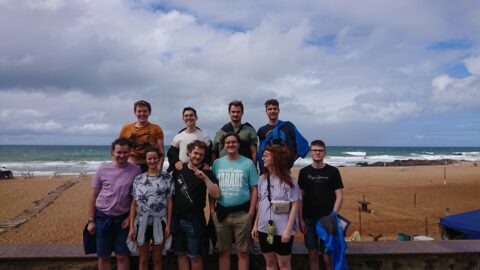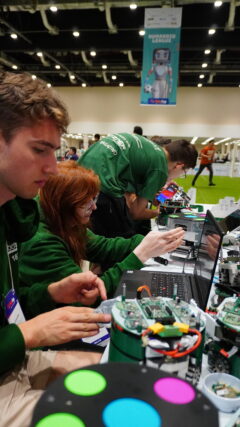 After a good breakfast, we headed out a bit earlier than yesterday – since yesterday we arrived too late at the hall. This time we were on time, and the stress kicked in right away: charging batteries, calibrating robots, prepping covers, testing encoders… At 9 a.m. (local BRA time), we already had our first match against TIGERs.
After a good breakfast, we headed out a bit earlier than yesterday – since yesterday we arrived too late at the hall. This time we were on time, and the stress kicked in right away: charging batteries, calibrating robots, prepping covers, testing encoders… At 9 a.m. (local BRA time), we already had our first match against TIGERs.
Overall, the game went okay – especially the first half. Even though we were down 4:0 at that point, as our first match of the tournament, and against the TIGERs no less, it was a solid start. Particularly frustrating: in the last 45 seconds of the second half, we conceded three more goals. Ouch.
In the team meeting afterward, it quickly became clear: our encoders were causing trouble. Untested battery and encoder mounts had damaged some cables, which led to faulty data. Some voltage levels (3.3V) also dropped intermittently – another encoder issue. On top of that, we were getting frequent fouls during kickoffs.
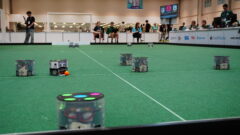 Our quick (and pretty much only) solution: we heavily reinforced the broken encoder cables with duct tape. That was all we could do, since we only brought a limited number of spare parts. The electronics crew is now trying to recycle broken encoders and build new ones from the parts.
Our quick (and pretty much only) solution: we heavily reinforced the broken encoder cables with duct tape. That was all we could do, since we only brought a limited number of spare parts. The electronics crew is now trying to recycle broken encoders and build new ones from the parts.
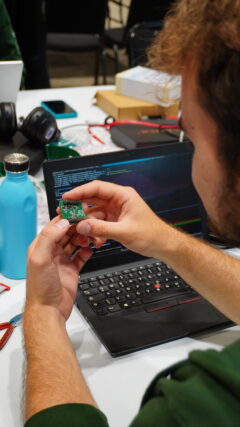
The rest of the day was filled with fixing, testing, and more fixing – but it paid off. We made noticeable progress and even took on our first official roles in the group stage.
One highlight: We got to use HWTK’s gimbal and managed to shoot some pretty cool clips of daily team life. There might be a little video coming soon!
As always in the evening: everyone on the team shares what went well and what didn’t. After that, another team meeting to get everyone up to speed. We also put together a game plan for tomorrow – it’s going to be intense: three matches, two ref duties. Pure stress.
Oh, and the betting game is back on too! Let’s see who’s got the best gut feeling this year.


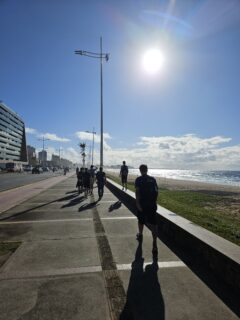
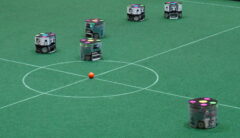
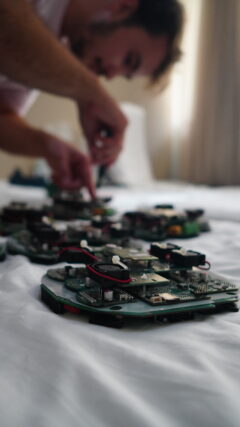
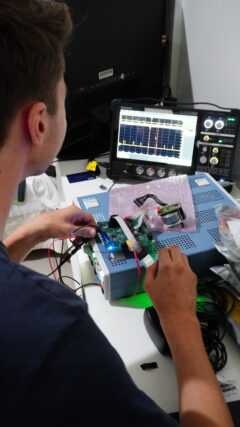 the tactical routines. At the same time, one topic kept coming back: wireless communication. Already a problem child during RoboCup in Bordeaux, the connection between robots and control remains a hot topic – and a critical one.
the tactical routines. At the same time, one topic kept coming back: wireless communication. Already a problem child during RoboCup in Bordeaux, the connection between robots and control remains a hot topic – and a critical one.